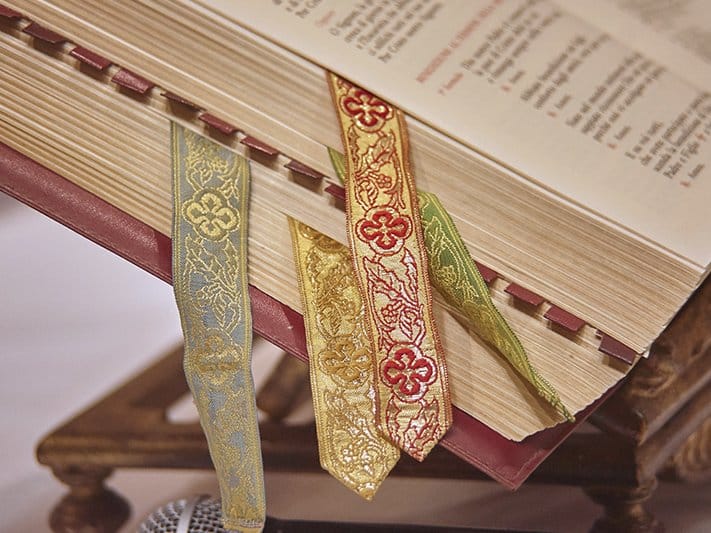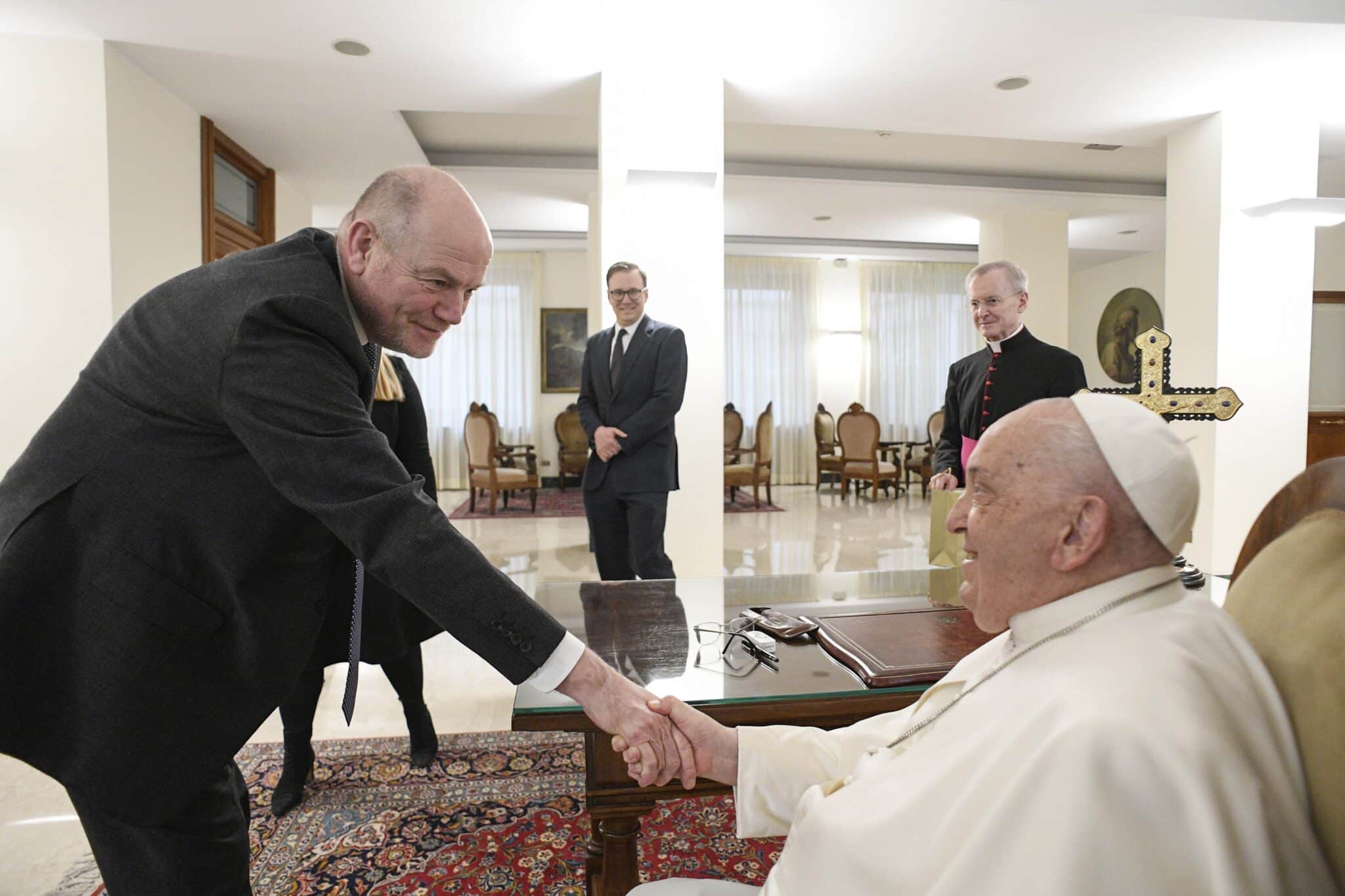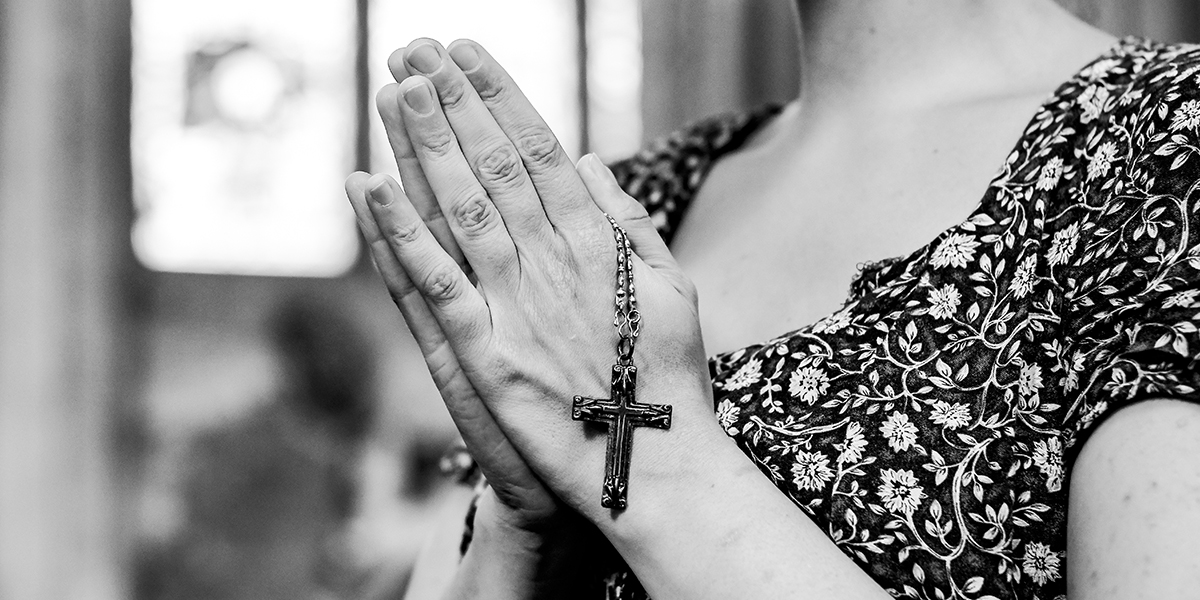A non-Catholic friend asked me how the Scriptures at Mass are selected. Who started this and when was the present system adopted?
Vatican II’s 1963 “Constitution on the Sacred Liturgy” called for a wider selection of biblical texts to be used at Mass. The current Lectionary (book of those readings) was prepared by an international committee of experts and went into use in 1970.
The cycles for Sunday readings (A, B, C) use continuous readings from the Gospels of Matthew, Mark, and Luke, respectively. The Gospel of John is used in the Easter season, some Sundays in Cycle B, and at other times.
On Sundays, the first reading is from the Old Testament and is coordinated thematically with that day’s Gospel. The second reading, a continuous one from other New Testament books, is not coordinated with that day’s Gospel and first reading. The weekday readings have a cycle for even-numbered years and another for odd-numbered years. In fact, the Gospels are the same in each cycle, but the first reading is from the New Testament some weeks and from the Old Testament other weeks.
The Lectionary cycles present 14 percent of the Old Testament and 71 percent of the New Testament. In contrast, the readings in the 1963 Roman Missal used 1 percent of the Old Testament and 17 percent of the New Testament.
Before I graduated from grade school in 1962, the same readings were often used several times a week, repeated from those of the previous Sunday, which had the same readings for the First Sunday of Lent, etc. Few people realized this because the readings were in Latin, and they did not have their own missals to follow along in English.
This much wider selection of readings helps people better understand God’s unique self-revelation in the Bible. More of the Bible is now used at Mass and for private prayer based on the Lectionary.
Ask a Franciscan appears monthly in St. Anthony Messenger. Click here to learn more!









4 thoughts on “How Are Mass Readings Chosen?”
I am a Lector for many years.
I read tomorrow and have a difficult reading: Hebrews 10:1-10. I was looking for some help in understanding that reading. I am sure many of the people that go to Mass tomorrow – if they will have read the reading before Mass tomorrow – will not have taken the time to discover the meaning of this passage.
In my study bible – “The Catholic Study Bible: New American Bible”, the discussion of this Book, includes”…Just as the infidelity of the people thwarted Moses’ efforts to save them, so the infidelity of any Christian may thwart God’s plan in Christ (3,6-4, 13)/ Christians are to reflect that it is their humanity that Jesus took upon himself, with all its defects save sinfulness, and that he bore the burden of it until death out of obedience to God. God declared this work of his Son to be the cause of salvation for all (4, 14-5, 10). Although Christians recognize this fundamental teaching, they may grow weary of it and of its implications, and therefore require other reflections to stimulate their faith (5, 11-6, 20).
And in another paragraph it says: “It is in the nature of faith to recognize the reality of what is not yet seen and is the object of hope, and the saints of the Old Testament give striking examples of that faith (11. 1-40) The perseverance to which the author exhorts the readers is shown forth in the early life of Jesus. Despite the afflictions of his ministry and the supreme trial of his suffering and death, he remained confident of the triumph that God would bring him (12, 1-3). The difficulties of human life have meaning when they are accepted as God’s discipline (12, 4-13), and if Christians persevere in fidelity to the word in which they have believed, they are assured of possessing forever the unshakable kingdom of God (12, 14-29).
The first paragraph indicates the problem for us: we grow weary of fundamental teachings and their implications.
How to correct this? I suggest a couple of things to make the readings more understandable to those attending Mass, especially when a brief reading is taken out of context, and/or there does not appear to be a connection between the readings, or the priest does not address the readings in his homily. Have the parish lectors, under the supervision of the pastor, prepare one or two minute comments on the readings (especially the first reading) and present them just before the announcements before Mass.
Perhaps the original source for choosing the readings, that was developed during Vatican II, and subsequently revised, should be available as a resource at each parish.
I think this would increase people’s participate at Mass. And that is an element of the Synodality process going on in our church at this time.
The selection of scriptures from the OT and NT as well as the Psalm to be read in every mass in every parish in every city of every country sets the Catholic Christian apart from any other pseudo churches because it has made more cohesiveness or harmony equals unity.
I need some help in determining the theme for the daily mass reading based on the 1st reading, psalm and gospel. How can
iIfigure out the theme?
Today’s (Aug 27, 2024) first reading (2 Thessalonians 2.1-3a, 14-17) deliberately omits what I consider to be the most important part of verse 3. While verse 3 warns “let no one deceive you”, today’s Mass reading deliberately omits the remainder of the verse referring to the apostasy and the revealing of the man of perdition / lawlessness!!!! Catholics must read the entire 2 Thes 2.